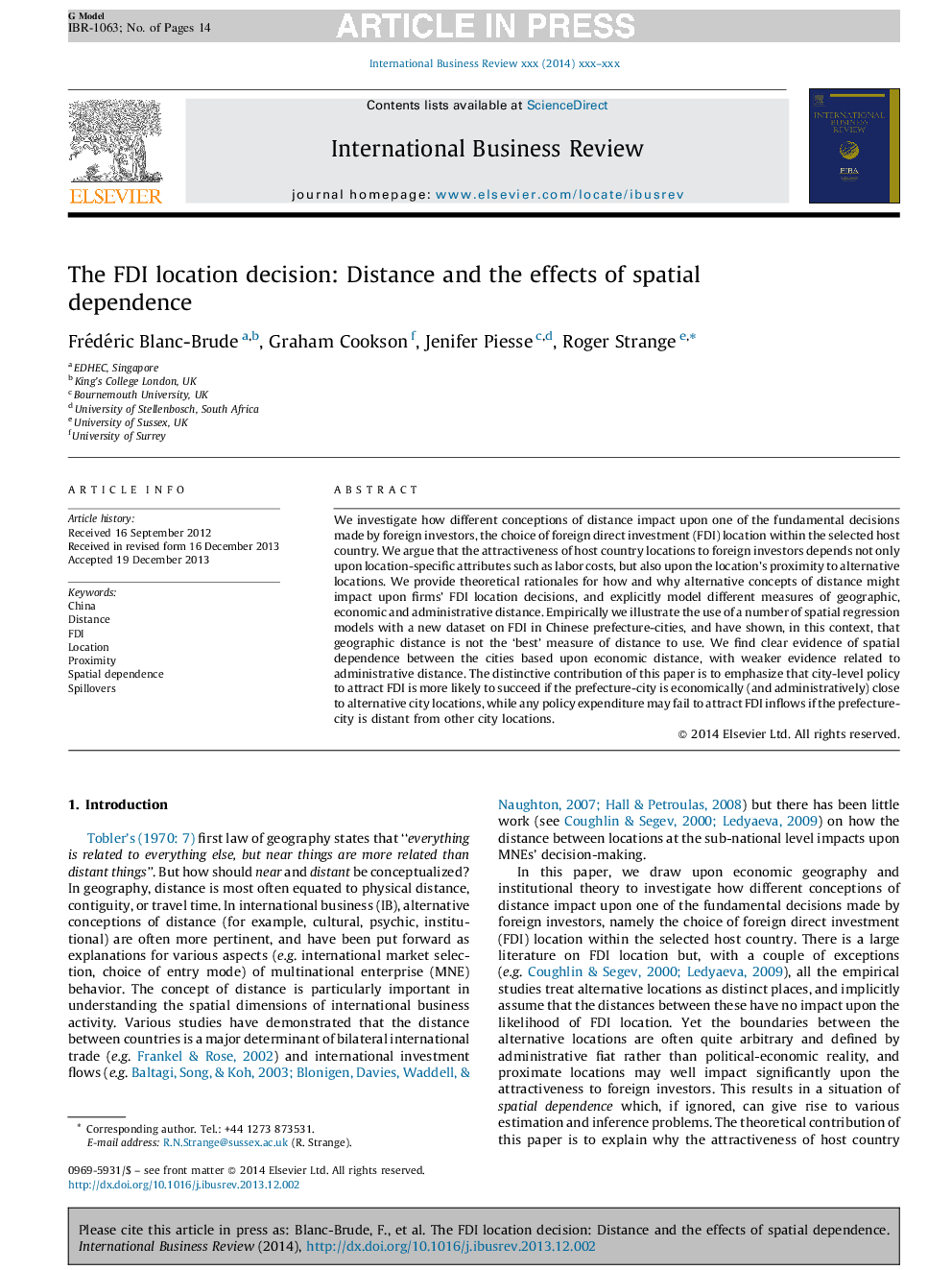| Article ID | Journal | Published Year | Pages | File Type |
|---|---|---|---|---|
| 10488133 | International Business Review | 2014 | 14 Pages |
Abstract
We investigate how different conceptions of distance impact upon one of the fundamental decisions made by foreign investors, the choice of foreign direct investment (FDI) location within the selected host country. We argue that the attractiveness of host country locations to foreign investors depends not only upon location-specific attributes such as labor costs, but also upon the location's proximity to alternative locations. We provide theoretical rationales for how and why alternative concepts of distance might impact upon firms' FDI location decisions, and explicitly model different measures of geographic, economic and administrative distance. Empirically we illustrate the use of a number of spatial regression models with a new dataset on FDI in Chinese prefecture-cities, and have shown, in this context, that geographic distance is not the 'best' measure of distance to use. We find clear evidence of spatial dependence between the cities based upon economic distance, with weaker evidence related to administrative distance. The distinctive contribution of this paper is to emphasize that city-level policy to attract FDI is more likely to succeed if the prefecture-city is economically (and administratively) close to alternative city locations, while any policy expenditure may fail to attract FDI inflows if the prefecture-city is distant from other city locations.
Related Topics
Social Sciences and Humanities
Business, Management and Accounting
Business and International Management
Authors
Frédéric Blanc-Brude, Graham Cookson, Jenifer Piesse, Roger Strange,
